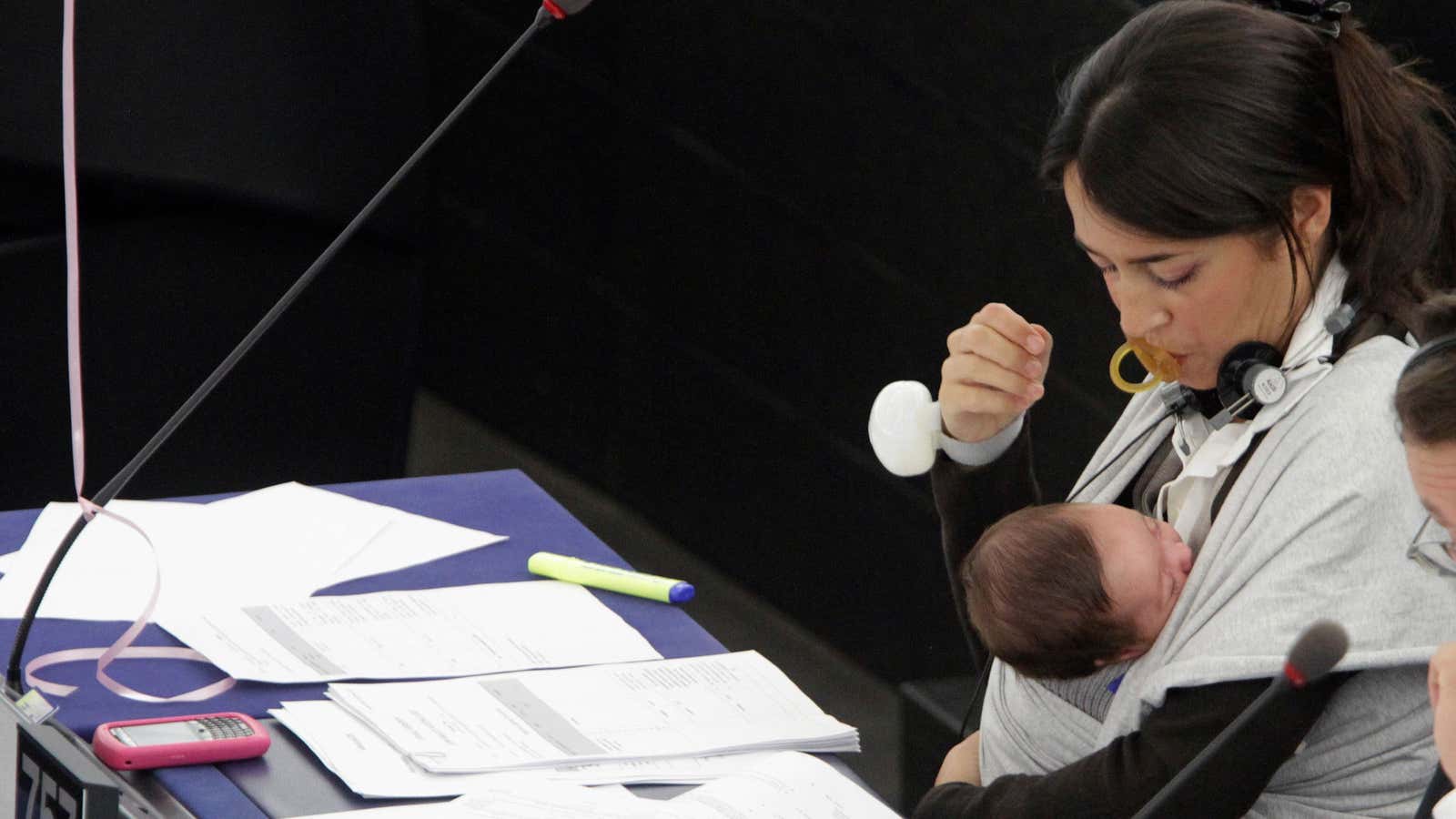For many journalists who work primarily in print, television appearances are a necessary evil. They promote a reporter’s work and please employers who want to get their publication in the public eye as much as possible. They are among the innumerable little extras that boost a career and matter when talk of promotions and raises come around.
As people who balance work and caregiving duties know well, these little extras—whatever form they take, in whatever industry—are often incompatible with the carefully managed schedules that make busy lives possible. Bosses see the simple message that says “Sure, I’ll handle it,” but not the frantic sprint of rescheduling, juggling, and calling in favors it takes to make that promise possible. And sometimes it simply can’t be done, no matter how much a professional wants to make it work.
Recently on Twitter, the New York Times reporter Sheera Frenkel pulled the curtain back on the life of a working caregiver. Frenkel, a cybersecurity reporter, woke up at 5 a.m. to soothe her crying 1-year-old child and found multiple messages from TV producers inviting her to discuss Russian interference in the midterm elections on their shows—that morning.
Three hours later, Frenkel appeared on MSNBC looking calm, polished, and authoritative. But as she detailed on Twitter, getting there took a manic stretch of phone calls, favors, and sheer luck. Had any of those lucky breaks not come through, she would have had to hand over the opportunity to a colleague—most likely one without caregiving obligations, or with a partner available to pick up the slack at home.
“Because I’m a mom to a (young) kiddo, I often have to watch (male) colleagues go on to discuss my work,” Frenkel wrote. She noted that her typically supportive husband was out of town for the week, and leaves early for work when he’s home in any case.
“I’m not blaming the TV studios,” she wrote. “They have slots to fill and the day’s news is often unpredictable. But this is just one example of how the system isn’t set up for moms, and why doing it all, at work and at home, is often a shitshow.”
This type of juggling is not the provenance of working mothers alone. It’s a dance familiar to working fathers, adult children of aging parents, and the 43.5 million people in the US committed to caring for a vulnerable person who requires assistance. It’s important for employers to understand how much dedication and effort it takes such employees to go above and beyond at work. Honest stories like the one Frenkel shared help.
